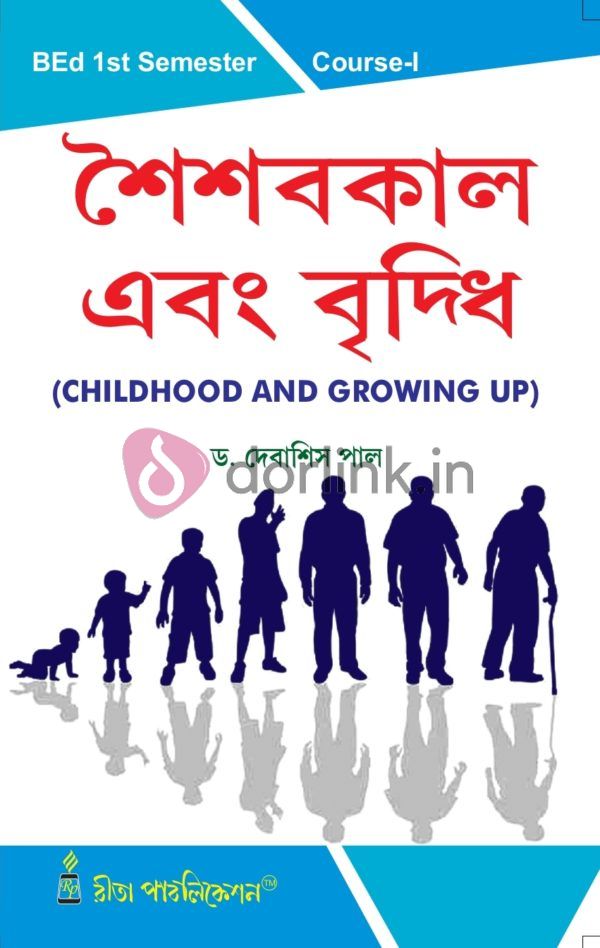Writer : Dr. Debashis Paul
- Shipping Time : 4 Days
- Policy : Return/Cancellation?
You can return physically damaged products or wrong items delivered within 24 hours with photo/video proof.
Contact Customer Support for return initiation and receive return authorization via email. Securely package for return.
Refunds for eligible returns are processed within 7-10 business days via Bank Transfer.
Order cancellation allowed within 24 hours of placing it. Standard policy not applicable for undamaged/wrong product cases. Detailed info. - Genre :NA
- Publication Year : NA
- ISBN No : NA
- Binding : No Binding Available
- Pages : NA
- Weight : NA
- Height x Width x Depth : xx Inch
If so, it will be notified
About the Book
Syllabus:
1st Half: Development and its Characteristics
Unit I: Growth and Developmental Pattern of Learners:
· Concept of growth and development
· General characteristics of growth and development
· Stages and sequence of growth and development
· Social factors that affect growth and development-poverty, lack of opportunities, deprivation, disrupted family, poor neighbourhood, poor housing
Unit II: Stages of Development:
· Different stages of development–infancy, childhood, adolescence, Adulthood.
· Adolescence–Physical development, Emotional development, Cognitive development.
· Needs and problems of adolescents, their guidance and counseling
Unit III: Different types of Development:
· Cognitive development—Piaget’s theory and its educational implications.
· Psycho-sexual development—Freud’s Theory.
· Psycho social development—Erikson’s theory of psychosocial development.
· Moral and pro social development—Kohlberg’s theory.
· Development of self-concept and personal identity.
· Communication and speech development—paralinguistic and linguistic stages of development.
Unit IV: Individual Differences:
· Role of heredity, environment including physical and socio cultural factors.
· Nutrition.
· Child rearing practices and Family.
Unit V: Development of Personality:
· Concept of Personality, types and traits of personality.
· Trait theories (Eysenck and Cattell’s 16 factor, Five factor).
· Measurement of personality (Self-report and projective techniques).
2nd Half: Aspects of Development
Unit I: Concept, nature, interrelationship and educational implications of:
· Instincts and Emotions
· Emotional Intelligence
· Attitude and Attachment
Unit II: Motivation:
· Extrinsic and Intrinsic Motivation
· Theories of Motivation—Maslow, Weiner and McClelland.
· Factors affecting Motivation—Self Efficacy, Locus of Control, Anxiety, Curiosity and their classroom implications.
Unit III: Attention and Interest:
· Concept of attention, determinants of attention and their classroom application
· Attention span and its fluctuation, distraction. Interest and its relation with attention
Unit IV: Intelligence:
· Concept and nature, its distribution across population.
· Factor theories of intelligence (Guilford, Thurston and Gardner’s theory of Multiple Intelligence).
· Measurement of intelligence (Verbal and non-verbal tests of intelligence).
· Intelligence quotient and education.
Unit V: Creativity:
· Concept of creativity
· Components of creativity
Its identification and nurturance.

